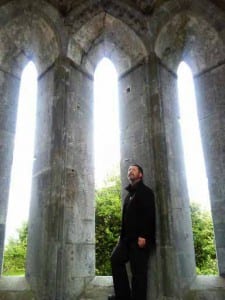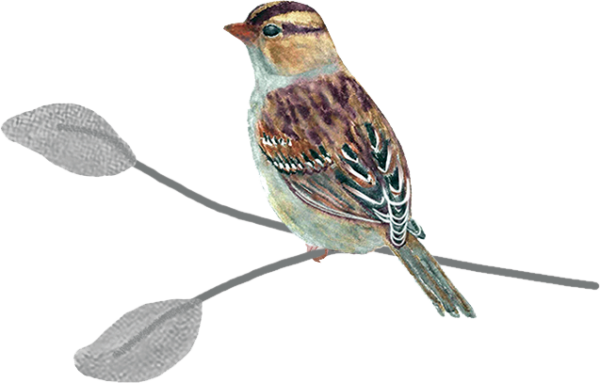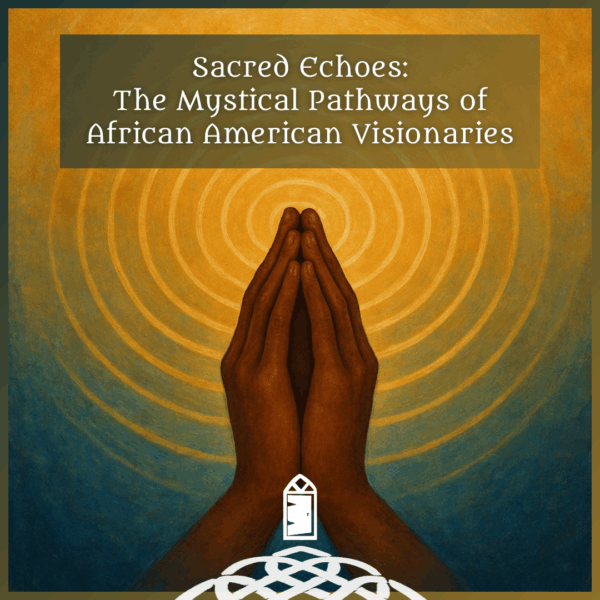The Abbey is so delighted to be offering an online retreat for men starting January 20th – Exile and Coming Home: Priest, Prophet, Politician, and Poet – An Online Journey for Men – facilitated by John Valters Paintner, Richard Bruxvoort Colligan, Roy Deleon, and Michael Landron. John shares some insights and an invitation to join him:
Greetings My Fellow Monks!
 A year and a half ago, I made a huge life change. I gave up a full-time job teaching theology at a Catholic high school. The main reason for leaving my teaching position was because the Hebrew Scriptures class I had taught for nine years was being dropped to make room for the new curriculum mandated by the US Catholic Bishops. Over the course of the nine years I taught the Hebrew Scriptures I delved into my own study for continued education and really fell in love with these ancient stories of faith. I loved teaching teenagers and believe it to be very important, but I could not get behind a curriculum that I felt was both theologically and educationally lacking.
A year and a half ago, I made a huge life change. I gave up a full-time job teaching theology at a Catholic high school. The main reason for leaving my teaching position was because the Hebrew Scriptures class I had taught for nine years was being dropped to make room for the new curriculum mandated by the US Catholic Bishops. Over the course of the nine years I taught the Hebrew Scriptures I delved into my own study for continued education and really fell in love with these ancient stories of faith. I loved teaching teenagers and believe it to be very important, but I could not get behind a curriculum that I felt was both theologically and educationally lacking.
And so I am thrilled to be teaching the Hebrew Scriptures again here at the Abbey of the Arts with our first men’s-only online retreat (Exile and Coming Home: Priest, Prophet, Politician, and Poet – An Online Journey for Men). Certainly things are different this time around. I will be co-teaching with some wonderful men rather than teaching alone. My fellow pilgrims along this spiritual journey (we are all students) will be more mature and are willing participants. And best of all, I am free from the constraints of a Church structure.
I am not anti-Church, but my spiritual journey has taken me beyond the pale of traditional Church confines. I still consider myself a Catholic and while the course is not Christ centered, Jesus of Nazareth is very central to my faith. However, as a Christian theologian I believe very strongly that the Old Testament is an equally sacred text that can stand alone as a testament to our human understanding of God and should be studied as such.
As much as I love the Bible, I have come to realize that it has not necessarily traveled well down through the centuries. There is much in those ancient books that are difficult or troubling for many modern readers. Finding a good linguistic translation is easy, they abound. The difficult part of modern Biblical studies is the cultural translation. By this I mean to say that most of us are not nomadic herders or farmers and so some of the analogies and the very mindset of the Biblical authors are easily lost. These cultural misunderstandings lead, unfortunately, to the Bible often being misunderstood. The biggest issue, I feel, is made by both fundamentalists and (some) atheists, alike. They both demand that the Bible be perfect. Therefore the fundamentalist reads every line of Scripture as literal fact. (I have heard some remarkable leaps and twists of logic to explain away or ignore blaring contradictions or troubling texts from some otherwise very erstwhile Christians.) Similarly, expecting the Bible to be true in every detail, the atheist will dismiss the entire Bible over the first inaccuracy. (I have heard atheists, who I otherwise greatly respect, ‘throw the baby out with the bathwater’ when it comes to the Bible.)
But love (of Scripture) is neither blind to faults nor critically dismissive. True love sees the flaws and understands them as part of the whole, which can then be loved and understood for what it really is. The Bible is the inspired word of God, not God’s dictation. The Bible is not definitive proof of God, the assumption is one of a divine presence . . . even if the nature of the Divine is always just beyond our grasp. The Bible (Old & New Testaments) is the collected sacred writings of ancient people trying to understand God. The three key moments of questioning that led to the writing of Scripture are the Exodus, the Exile, and the Crucifixion. In each of these instances, people thought they understood God, but are then so surprised by God’s actions that a great spiritual wrestling begins that ultimately results in the writing of the Hebrew and Christian Scriptures. The answers that the Biblical authors arrive at are deeply profound, but often colored by their ancient cultural worldview. And so to best understand
what they are trying to tell us through their writings, we must do our best to understand who they were (to put ourselves in their sandals, so to speak) to better understand their message.
We won’t have time to delve into all three of these big questions of Biblical faith in one class. We will only scratch the surface of one of them in our online men’s retreat, but what better place to begin than at the start of the Bible. Not chronologically at “the beginning,” but with the event that prompted the ancient Jews to sit down together and ask themselves, “if we are the beloved children of God, how did we become Exiled and how do we return home?”
I invite you to join me on a journey through some of these ancient stories and listen for the wisdom they offer to us as we strive to live in more contemplative ways in the world.
Join us starting January 20th: Exile and Coming Home: Priest, Prophet, Politician, and Poet – An Online Journey for Men




35 Responses
Hi Sylvia, the class is being held this summer:
https://abbeyofthearts.com/classes/online-classes/exile-and-coming-home/
I hope you are compiling a list of the women (including me) who want to take this course….and that you will email us when you are ready. Otherwise, I might miss the announcement, when I am out of the country (or have my head buried in a book).
Thanks.
MaryB,
While it was never the intention, the majority of people who take part in the Abbey of the Arts have always been women. Since leaving my previous teaching position and coming to work full-time with my wife we have been discussing ways to involve more men in our work to counter-act this gender imbalance. A men’s only retreat was one strategy we are trying. It certainly won’t be a regular occurrence, any more than the current women’s only retreat is a regular event.
Thank you for your question,
John
John
Why a men only course ? Not asking for or when there will be a combined course or even a women only course, I am asking why a men only course. Just joined the Monks today, this gave me pause.
Thank you, Audrey. I look forward to an integrated course in the future.
Yes, me too, not wanting to be a man but wanting to take the course.
Thank you for sharing your journey. Learning about what other had been through helps us see our situations/plights in a different light.
The course sounds interesting – this is one time I wish I were a man :-)
Thank you, Rosanna. And don’t worry; after we men run the beta test on this course, we’ll open up the improved version to everyone. :-)
I’ll add my voice to the other women and say I’d also love to join you in this course in the future. The Old Testament has always been something of a mystery to me. I’m very impressed by the backgrounds of your fellow “teachers” and the weekly outline looks interesting. It’s also a price I can afford. I’m pleased to see men getting involved in the Abbey. May God bless you as you teach and learn together.
Thank you, Barbara. It’s a great opportunity for me to work with some other great men as we invite more men to join the Abbey.
John, thank you so much for sharing your story here of how you arrived where you are. Yes, looking forward to some biblical studies, but so glad you men have a dedicated space to explore this among yourselves.
Thank you, Deb. We’ll have a combined class soon. I promise.
Exodus, exile, crucifixion as key experiences of “spiritual wrestling” resonates with me. We think we know what God is about and then we are surprised, along with a lot of other more intense emotions! “Always we begin again” like the Hebrew people, to probe our hearts to find the God who is so engaged in relationship with us. Blessings on your course, John!
Thank you, Barbara. I hope to write more about these three key experiences in the future.